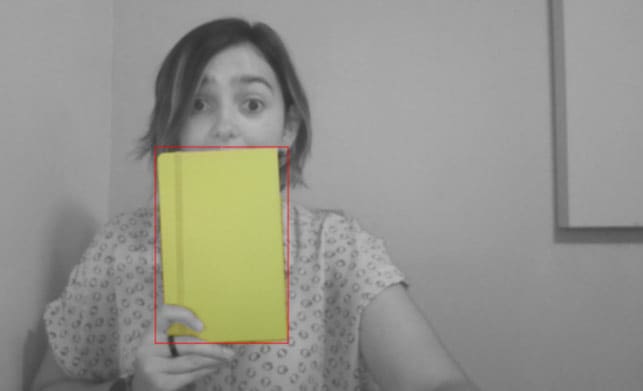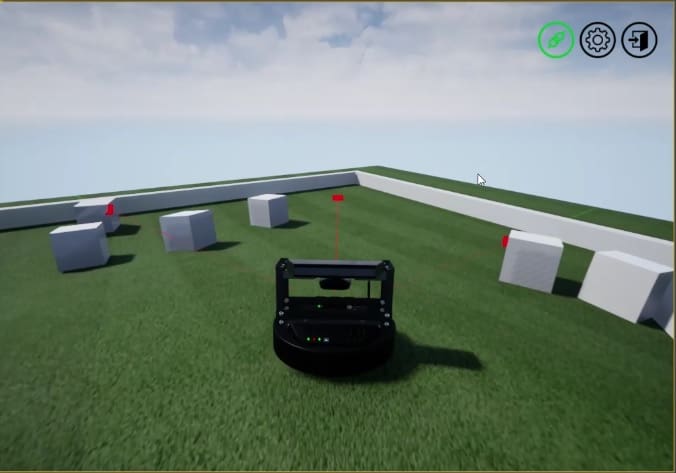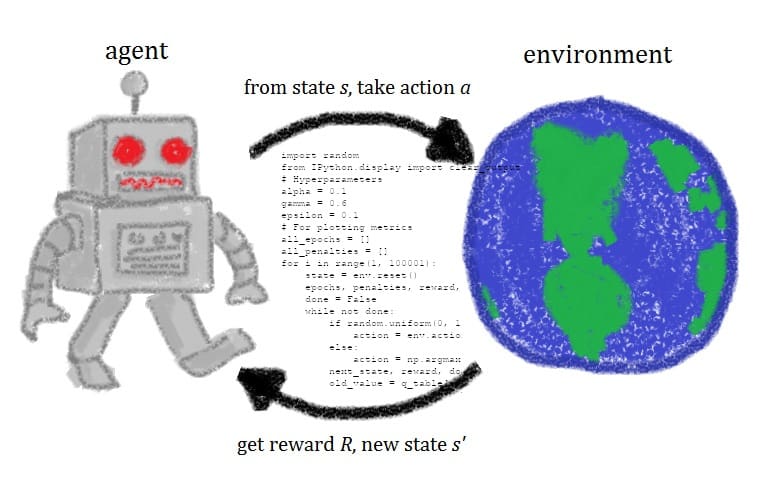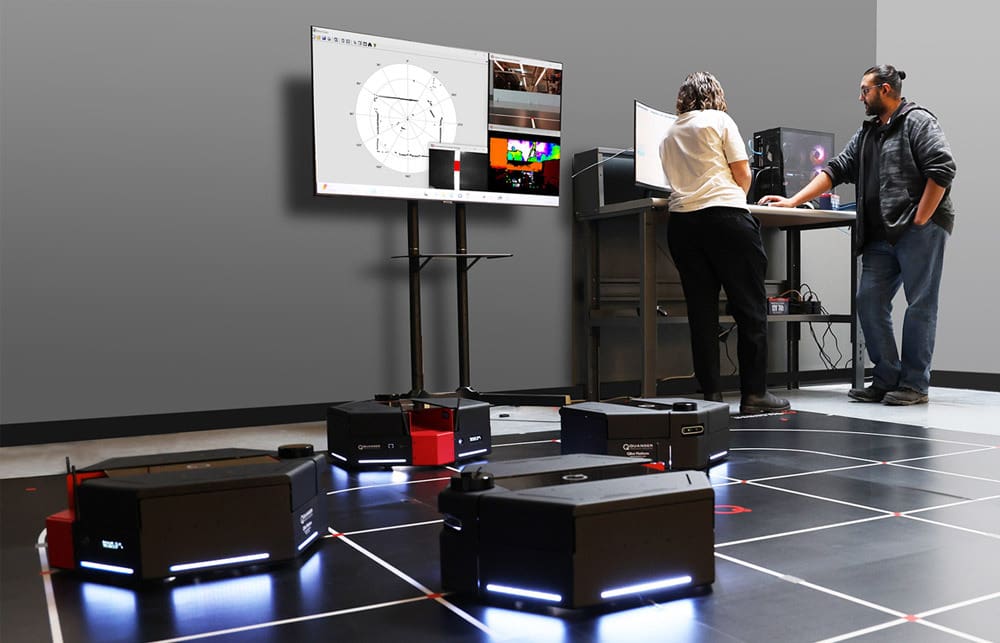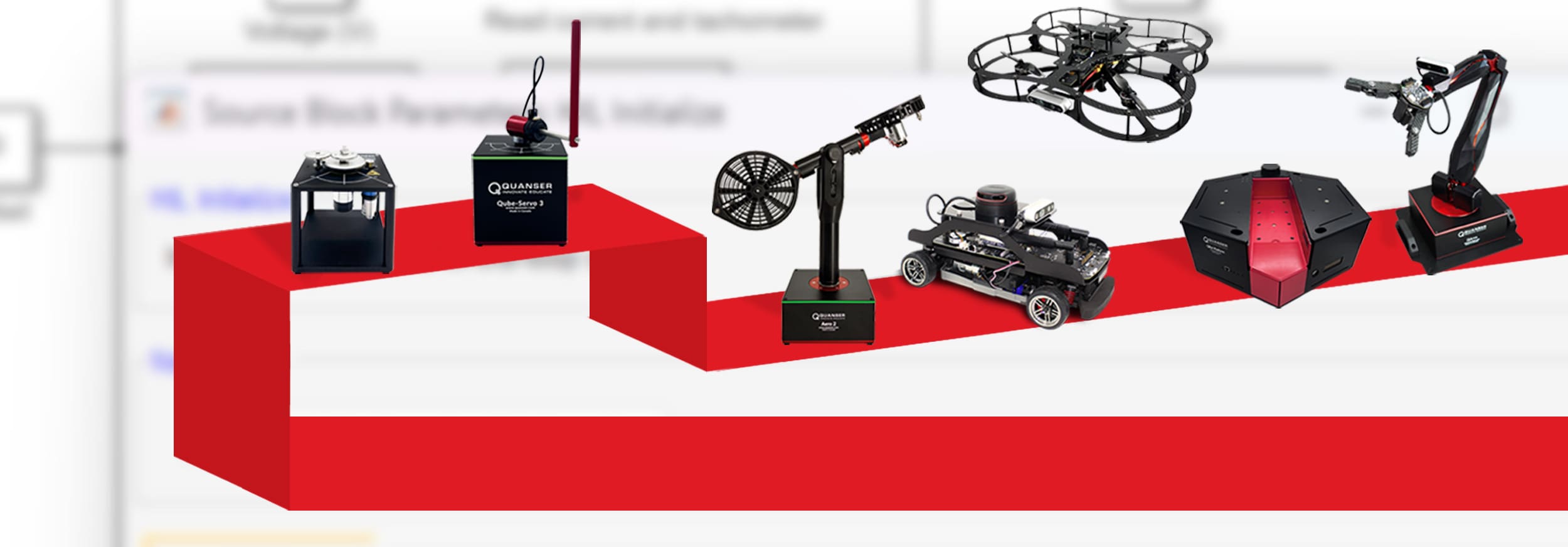
Earlier this year, I had the privilege of addressing a group of ECE Department Heads and chairs at the annual ECEDHA conference. Given the conference theme around the future of ECE engineers and as an ECE graduate myself, I decided to focus my 15 minutes presentation on the future of robotics being in the hands of ECE departments.
It was a crisp Sunday Morning in late March and the New Mexico sun was just beginning to heat up the day – I was one of the first talks of the day so I felt obliged to be a little controversial and wake the audience up! There is no better way to get an Engineer’s blood pumping than to challenge their department’s claim to be the ‘best’ .
My opening slide was the following image:
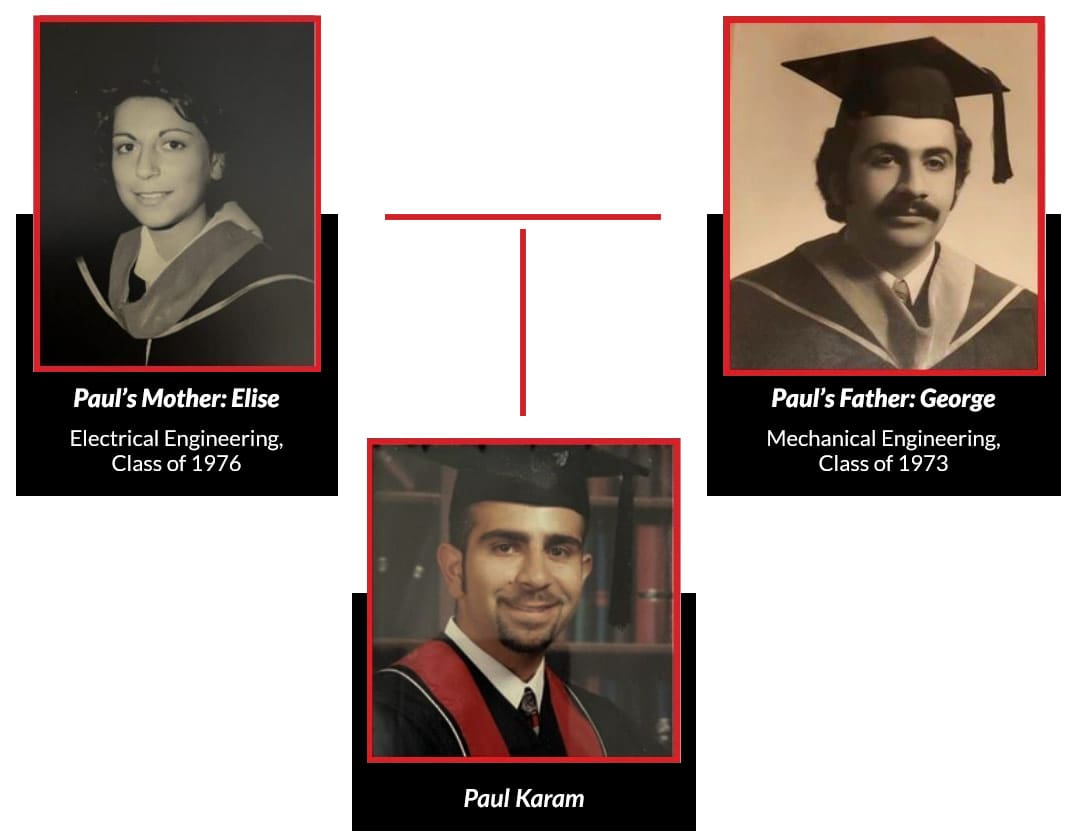
Growing up as a child of two Engineers (My mother Elise an Electrical grad and my father George a Mechanical grad), I knew very early on about the battle between Mechs and Elecs! I continued that tradition of competition when I decided that I was going to be better than both my parents and become a computer engineer!
I was convinced (as sure as any 17-year-old can be) that I was destined to become a computer engineer and write code for the rest of my life…but then as is often the case, life happens:

Fast forward 23 years later and here I am as Chief Robotics Officer at a wonderful company called Quanser:
![]()
For those of you who may not know much about Quanser, we are an academically focused company who for the last 35 years has had a mission of delivering fantastic engineering labs to complement undergraduate teaching and graduate research. Our vision is that engineers need to be given many experiences of bringing theory to life in the Lab as hands-on lab experiences are what differentiates us from other STEM disciplines!
Although I might have claimed that I was a robotics engineer when I graduated in June of 2000, it has taken me 23 years of applying theory on real systems and iterating on failures and discoveries to authentically call myself a true robotics engineer. In my experience over those years, I can confidently claim and finally appreciate the fact that I didn’t need to be better than both my parents but rather combine their skills and disciplines together to get me to be the best robotics engineer I can be.
While I did graduate from the ECE department, I still fundamentally believe that Robotics is and should always be multi-disciplinary. Our observations over the last 10-20 years were that robotics was a natural evolution of mechatronics and most mechatronics departments were either completely part of mechanical or, at the very least adjacent to mechanical. The classic mechatronics image below shows a balanced Venn diagram of many interdisciplinary engineering specialities:
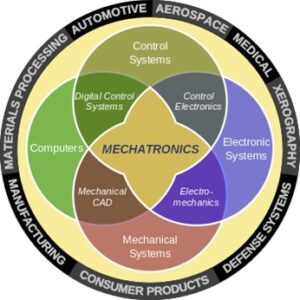
As we approach the quarter mark of the 21st century, things have and are definitely changing. The image above of does capture an electro-mechanical specialization but it misses the mark in capturing the direction and growth of current day Robotics.
To further examine this thought, I did what most students will do today…I asked ChatGPT!:
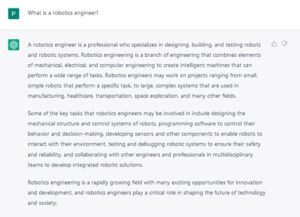
I was pleased to find that even ChatGPT is aware of where robotics and robotics engineering should be heading. As our solutions at Quanser evolved from control systems, through mechatronics and now robotics, autonomy and AI, the following diagram has emerged as to how we capture and describe modern robotics:
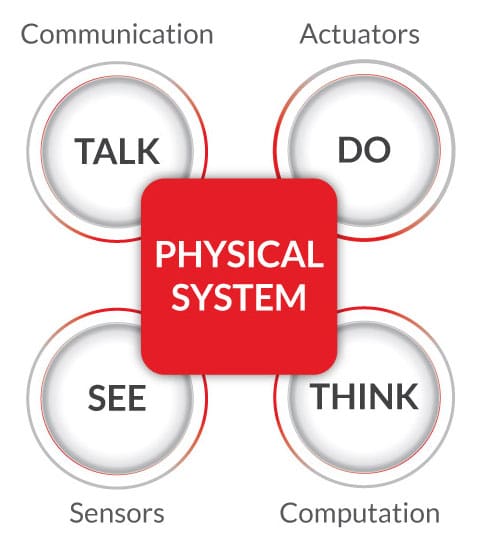
We believe capturing and communicating that any modern intelligent system or robot should always iterate around these 4 fundamental elements of:
- See: Sense the world around you and bring in new modalities of data and information.
- Think: Use your previous memory and fuse it with the new information you have just seen to better update your understanding.
- Do: Use your thinking to decide what to do next, where to go, how to go about it and what energy to utilize.
- Talk: Communicate, Communicate, Communicate. The more robots can communicate with one another and with other systems, the more intelligent they will become.
When it comes to viewing these functions from a departmental specialization lens, it becomes clear that many of these functions are at the core of all ECE departments.
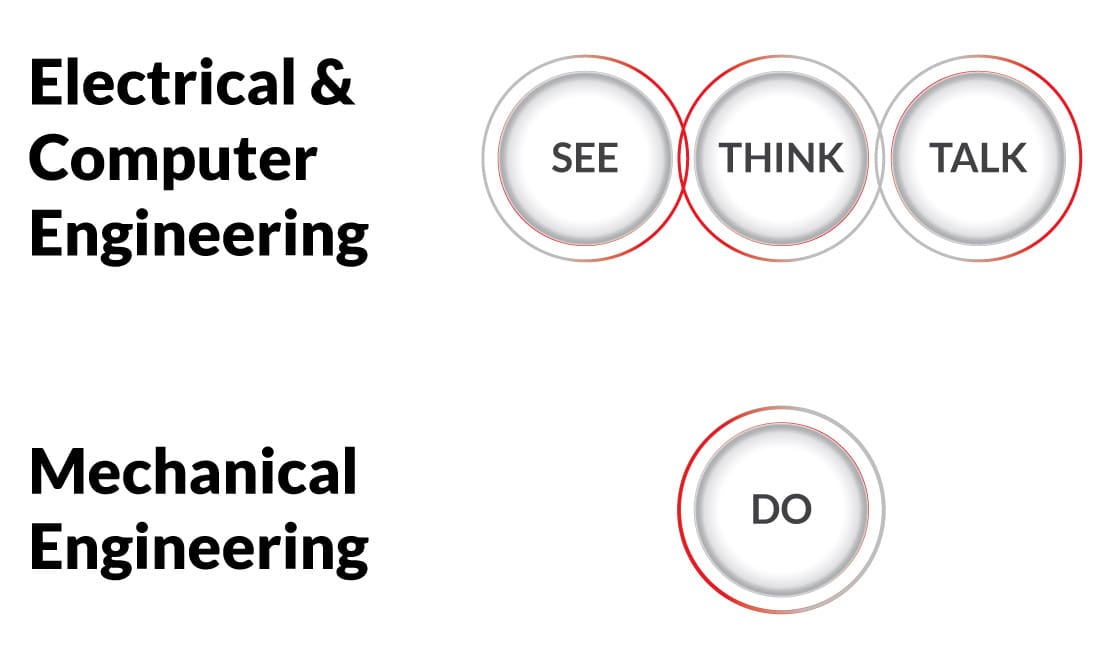
There are still many novel and exciting elements for us to discover and engineer in the world of doing (Energy, Propulsion, Sustainability, etc). Having said that, the biggest advancements that Robots will be making in the next decade will come from further developments in the 3 other areas of robotics – which are all squarely at the heart of ECE departments!
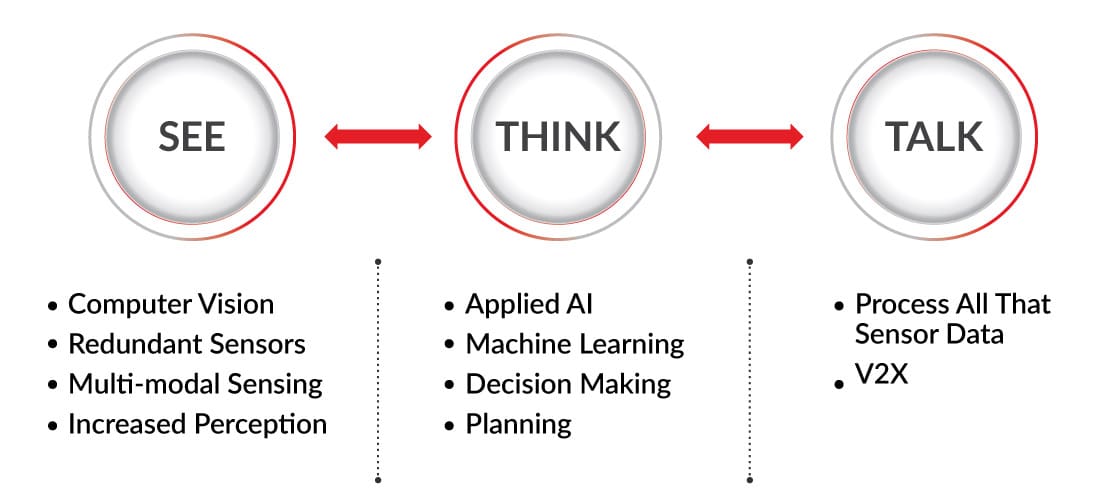
The above bullet points simply capture a small sample of where these fundamental elements of a Robotic system will continue to grow and be engineered – and more specifically, they are all core to ECE departments:
- See: The smart phone has revolutionized our advancements in camera technology as well as inertial measurement units. Tesla and other self-driving car companies are continuing to develop better and novel modalities of sensing the environment around them to better inform their robots of where they are and what’s around them.
- Think: How many times have you thought about or read about AI this week? We are simply at the infancy of where AI and generalized computing is heading. Finding novel ways to learn and process large sums of data and create novel systems that can make real-time decisions on these large sets of data will be how we transform and automate many of the systems and robots around us.
- Talk: As sensors and sensor data grow exponentially, so do the need to find ways of capturing, transmitting and storing all of this data. Over and above the localized management of the data, the more robots are able to talk to one another and other systems in their environment, the better and smarter they will generally be. We have demonstrated these increased capabilities and intelligence in many of our Autonomy and AI Labs such as our Self-Driving Car Studio and our Autonomous Vehicles Research Studio to name a few.
In conclusion (and not completely disappoint my dad), I do still truly believe that robotics is and always will be multi-disciplinary…there is no question in my mind that some of the most important advancements in the field of robotics will come from professors, students and graduates of ECE departments!
To not completely alienate my other half (Mechanical Engineers), there are and will still be many important robotics concepts that will be driven from ME departments and ME Engineers –
Please stay tuned for an upcoming article on the critical role Mechanical and Mechatronics Engineering departments will play in the future of Robotics!
All of us at Quanser are driven to continue to support and grow with the global academic engineering community and we would love to continue this conversation with you online! Please feel free to connect with myself directly via LinkedIn and also subscribe to our newsletter to stay in touch and receive exciting news on new engineering feats and developments our partner Universities have accomplished around the world!

